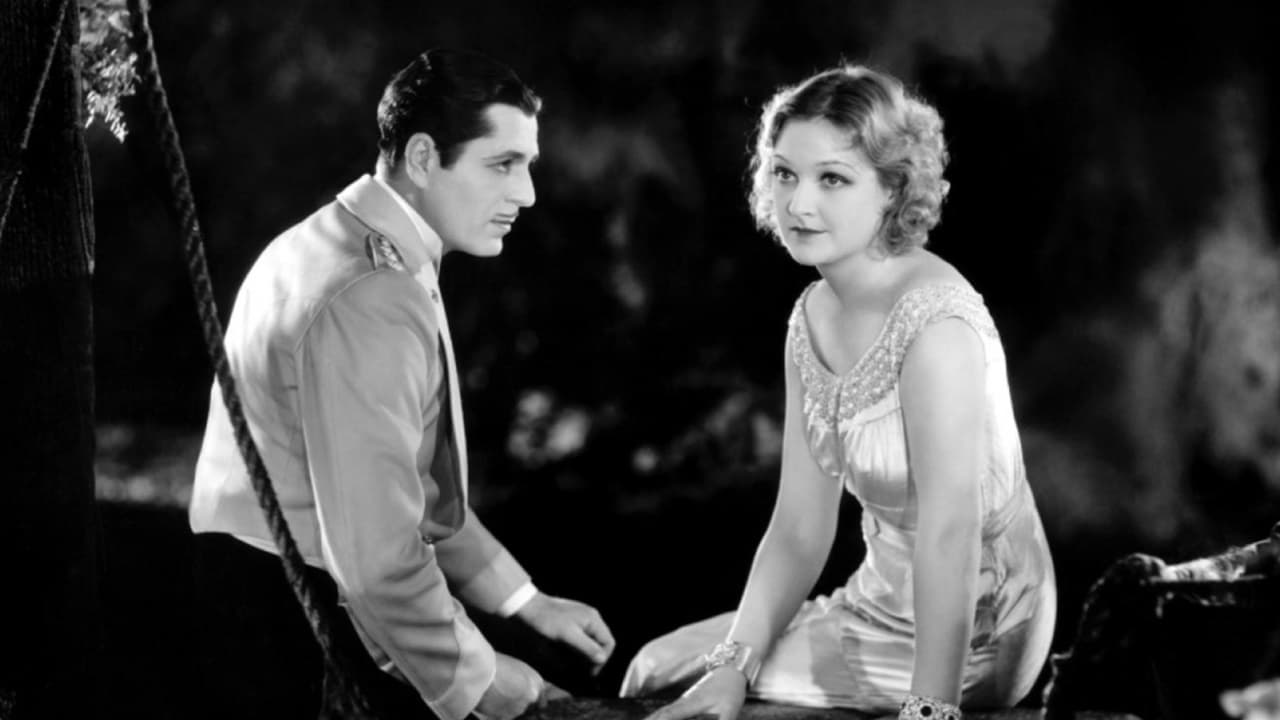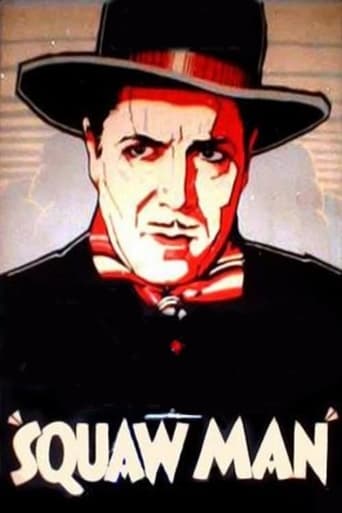



Load of rubbish!!
A Brilliant Conflict
I have absolutely never seen anything like this movie before. You have to see this movie.
View MoreActress is magnificent and exudes a hypnotic screen presence in this affecting drama.
View MoreThis story is a bit hard to swallow. A British noble leaves England to save the family name - his cousin, actually - who has embezzled and bankrupted the family fortune, leaving the woman he loves (who is married to the embezzler). He then turns up as a rancher in Texas (honest, I'm not making this up), takes up with an Indian girl who bears him a son. Seven years later, the embezzler dies but confesses, freeing the benighted couple to marry, she in England and he in Texas. Think you can go with it? Well, I couldn't, but the principals are so in earnest and the mood so solemn that you give it a break - a rating of six, to be exact.I am into acting performances and this picture has many good ones; Warner Baxter (extremely in earnest), Eleanor Boardman and Roland Young (somewhat in earnest) and Lupe Velez, who really doesn't fit and, to my mind, nearly sinks the picture with a catatonic performance. She got better in the "Mexican Spitfire" series in the 40's. As I say, the preposterous plot is played with a straight face, so I gave this head-scratcher the benefit of the doubt.
View MoreI really enjoy films from around 1931. I like the "early talkie" aesthetic, with gritty black & white photography, sparse (if any) musical scoring, and slightly edgy pre-Code content. In those days of the studio system, Hollywood studios would churn out lots of inconsequential 72-minute quickies. But Cecil B. DeMille's THE SQUAW MAN (1931) is clearly not one of them. DeMille was an auteur and THE SQUAW MAN is something special. A cut above the usual Hollywood fare of the time.This 1931 film is actually DeMille's third adaptation of the story, following his 1914 and 1918 silents. The third time's the charm for DeMille, who crafts an involving tale with a fine cast and the added dimension of sound.Jim Wyngate nobly leaves England to live in self-exile in America for the sake of his cousin's marriage to the beautiful Lady Diana. At the same time, he nobly volunteers himself to take the blame for his cousin's embarrassing mishandling of charitable funds. He settles out West and takes up ranching under an assumed name. He makes friends and enemies amongst the cowboys and becomes attached to a young Indian woman. (Native American, that is.) After years of living as a cowboy in Arizona, will Wyngate return to England and resume his past aristocratic lifestyle? Can he?The cast is great across the board. Warner Baxter, three years removed from his Oscar-winning turn as the Cisco Kid (IN OLD ARIZONA - 1928), stars as Jim Wyngate, the selfless hero. The lovely Eleanor Boardman (THE CROWD - 1928) plays Lady Diana, who loves Wyngate but is married to his cousin (Paul Cavanagh). Charles Bickford is great as the heavy and DeWitt Jennings does a good job as the villainous sheriff. Roland Young (TOPPER - 1937), a personal favorite of mine, has a nice supporting role.Sexy Mexican spitfire Lupe Velez is Naturich, the "primitive-minded" Indian girl who is chivalrously defended by Wyngate and repays him by saving his life a couple times. There's a connection between the two that transcends cultural barriers and, half a world away from Diana and his past life, the white man takes Naturich as his wife. Velez is heartbreaking in a scene where she fashions a crude toy horse as a birthday gift for her half-breed son (Dickie Moore), who is more interested in his model train.This film is a vast improvement over C.B. DeMille's own landmark 1914 version. Although the basic plot line is the same, there are several differences in the stories. I don't know which film is closer to the original "Squaw Man" play, but I found this talkie version more effective. (In fact, the 1914 film might not have made as much sense if I wasn't already familiar with the story from this later version.)The key to this version is the emotional ties between the characters. Jim loves Diana, but nothing can come of it. So he moves thousands of miles away, but we see his face when he sees her picture in the society section. He learns to move on while living with Naturich, but Diana makes a surprise visit and expects things to be just as they were. Jim is excited at the prospect of returning to England, but there's no place for Naturich in English society. And noble Jim wouldn't walk out on poor sweet Naturich. But what of their son? Half white man, half Indian. Should he be taught to rope cattle and beat tom-toms, or should he receive the fine education to which the Wyngate family is accustomed? Jim struggles to decide his son's future at a crucial point. There are no simple solutions for anyone. It may sound melodramatic, but viewers are invested in the characters and must know how things turn out.The characterizations in the 1914 silent film lack heart.
View MoreThe Squaw Man (1931) ** 1/2 (out of 4) This here was Cecil B. DeMille's third attempt at telling Edwin Milton Royle's play. This time out it's Warner Baxter who plays Jim Carston, a British man who is ran out of his country so he heads to the United States and out West. Once there he crosses a rival landowner but things take a turn for the worse when he falls in love with an Indian woman (Lupe Velez), which is a big no-no. This version from DeMille offers up a terrific cast and I think the racial issues are a lot more out front here but I really can't say that this was any sort of improvement over the 1914 version, which I've seen. All but the last reel is lost from the 1918 version so it's impossible to compare all three but this third version features quite a few problems. I think the film's biggest problem is the pacing because at times it moves along at a very slow pace. This includes the early stuff in Britain, which could have been completely left out and I think it would have helped. I also thought some of the stuff in the West dragged during spots but there's no question that the film is still worth viewing for the performances alone. Baxter was extremely good and believable in his part and there's certainly no doubt that he fit the tough guy role just fine. Charles Bickford is excellent as always and we get nice support from Roland Young, Paul Cavanagh and a young Dickie Moore. Velez easily steals the show as she's terrific in each scene she's in. Her beauty is on full display and while I'm sure some might be offended by the way the Indian is played, I thought the performance itself was very good. DeMille delivers a decent picture but at the same time one can't help but wish he had left this alone and attempted something else.
View MoreAs all film buffs know Cecil B. DeMille's first version of The Squaw Man was the very first film done in what we now call Hollywood. He did a second silent version and for his third film on his MGM hiatus from Paramount he did it once again.Third time was not the charm. Although the actors, especially Warner Baxter as the disgraced English Earl who goes to the American west and meets, weds, and beds an Indian maiden, Lupe Velez are competent and sincere the film is terribly dated. Depression audiences simply were not interested in a Victorian morality tale with a dose of the British stiff upper lip.It all sounds so quaint and ridiculous. Baxter is accused of embezzlement and he knows who the culprit is, but won't inform because he doesn't want to disgrace the other guy's family. So with admirable rectitude he heads west and make a new life in America.He also manages to make an enemy of Charles Bickford who was another rancher who covets his land. But Baxter finds love with Lupe, as did most of Hollywood in real life, and he has a son who will in fact inherit his title.Cecil B. DeMille was a child of his time. Melodramas like The Squaw Man was the stuff that the legitimate theater did when he grew up and learned his trade from David Belasco. But audiences weren't buying it in 1931, people had real issues about where the next meal was coming from and could they find work. A story about some Victorian honor code just wasn't marketable.It's a sincere film though and it might be worth a look to judge what public tastes were at the turn of the last century and before the Roaring Twenties.
View More